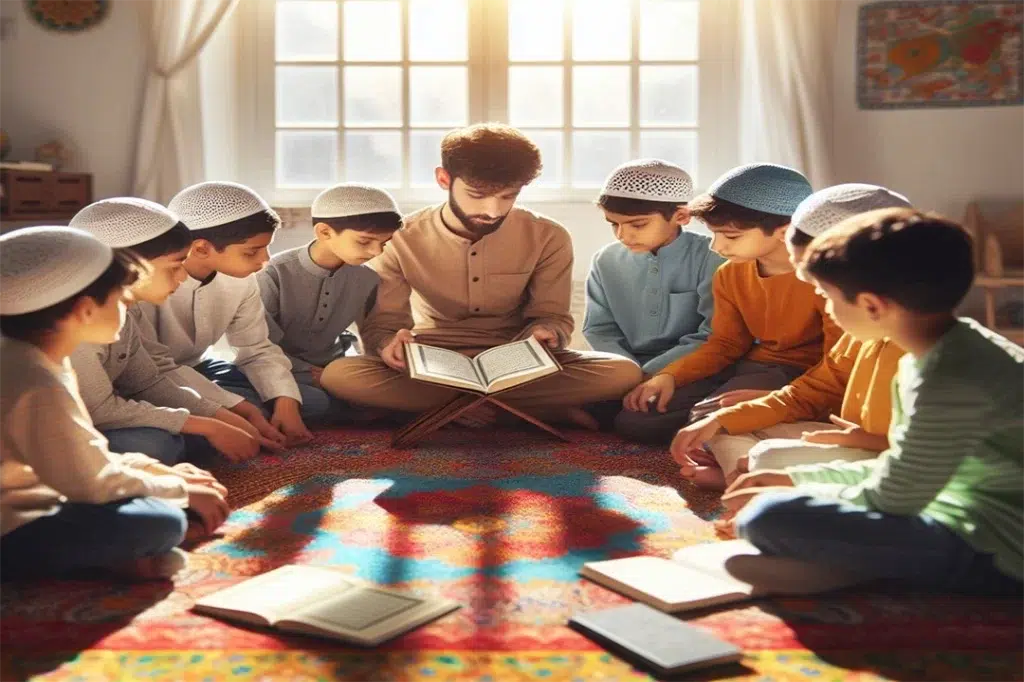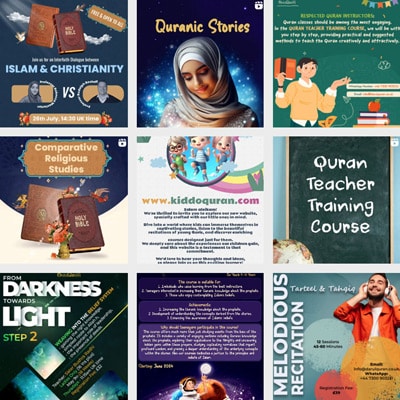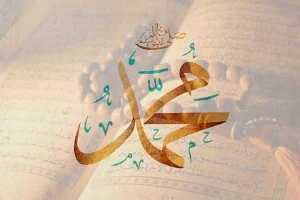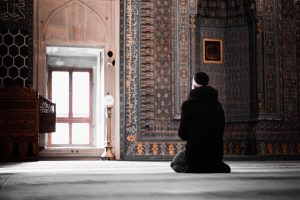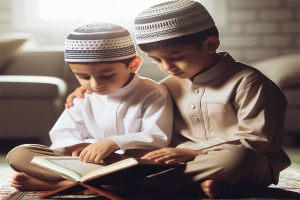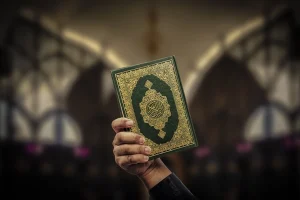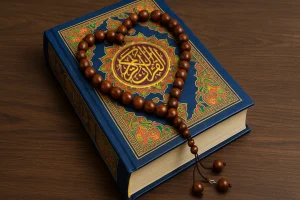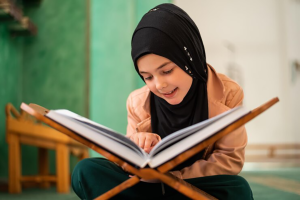If a seeker of knowledge embraces death while he is on learning position, he is regarded as a martyr.
Prophet Muhammad ﷺ
Table of Contents
ToggleThe Holy Quran is the central religious text of Islam; which Muslims believe to be a revelation from Allah. It is widely regarded as the finest work in classical Arabic literature and contains guidance for all aspects of life.
Islam and the Sacred Quran
Core Tenets
Islam is a religion that is based on the teachings of the Holy Quran, the holy book of Islam. Quran contains the core tenets of Islam, which are the fundamental beliefs and practices that form the foundation of the religion.
These core tenets guide the beliefs and actions of Muslims, shaping their worldview and defining their relationship with Allah.
One of the core tenets of Islam is the belief in the oneness of Allah.
This belief, known as Tawheed, is central to the Islamic faith and is expressed in the shahada, or declaration of faith, which states, “There is no Allah but Allah, and Muhammad is His messenger.”
This belief in the oneness of Allah is seen as the foundation of Islam and is the basis for all other beliefs and practices in the religion.
Another core tenet of Islam is the belief in the prophethood of Muhammad. Muslims believe that Muhammad was the last and greatest of the prophets sent by Allah to guide humanity.
His teachings, as recorded in the Holy Quran and the Hadith (sayings and actions of the Prophet), are considered authoritative and are followed by Muslims as a guide for living a righteous and moral life.
The Sacred Quran also emphasizes the importance of prayer, charity, fasting, and pilgrimage as essential practices for Muslims. These acts of worship are seen as ways to strengthen one’s faith, purify the soul, and demonstrate devotion to Allah.
Prayer, in particular, is considered the most important act of worship in Islam, with Muslims required to pray five times a day at prescribed times.
In addition to these core beliefs and practices, the Grand Quran also outlines a moral code for Muslims to follow. This code emphasizes honesty, kindness, compassion, and justice, and instructs believers to treat others with respect and dignity.
Muslims are also encouraged to strive for knowledge, seek understanding, and promote peace and harmony in society.
Legal System
The legal system of Islam as outlined in the Noble Quran is a comprehensive and dynamic system that governs all aspects of a Muslim’s life.
It is based on the principles of justice, fairness, and equality, and is intended to provide guidance for adherents of the faith in their interactions with others and in the resolution of disputes.
One of the key features of the legal system of Islam is the concept of Sharia law, which is derived from the Sacred Quran and the Hadith, the traditions and sayings of the Prophet Muhammad.
Sharia law encompasses a wide range of legal principles and rules that govern both individual behavior and societal norms. It covers areas such as criminal law, family law, business transactions, and inheritance.
In the Glorious Quran, there are numerous verses that provide guidance on legal matters and the principles of justice. For example, in Surah Al-Maidah, verse 8, it states, “O you who have believed, be persistently standing firm for Allah, witnesses in justice, and do not let the hatred of a people prevent you from being just. Be just; that is nearer to righteousness.
And fear Allah; indeed, Allah is acquainted with what you do.” This verse emphasizes the importance of justice and fairness in all dealings and interactions, regardless of personal biases or prejudices.
Another important aspect of the legal system of Islam is the concept of qisas, or retribution.
In cases of murder or bodily harm, Islamic law allows for the victim’s family to seek retribution equal to the harm caused. However, it also allows for forgiveness and the payment of blood money as a form of compensation, which is meant to promote reconciliation and forgiveness.
The legal system of Islam also places a strong emphasis on the protection of the rights of individuals, particularly women and children.
In cases of divorce, for example, Islamic law provides for the fair distribution of assets and the provision of financial support for the wife and children. Quran also prohibits the mistreatment of women and children and emphasizes the importance of treating them with kindness and compassion.
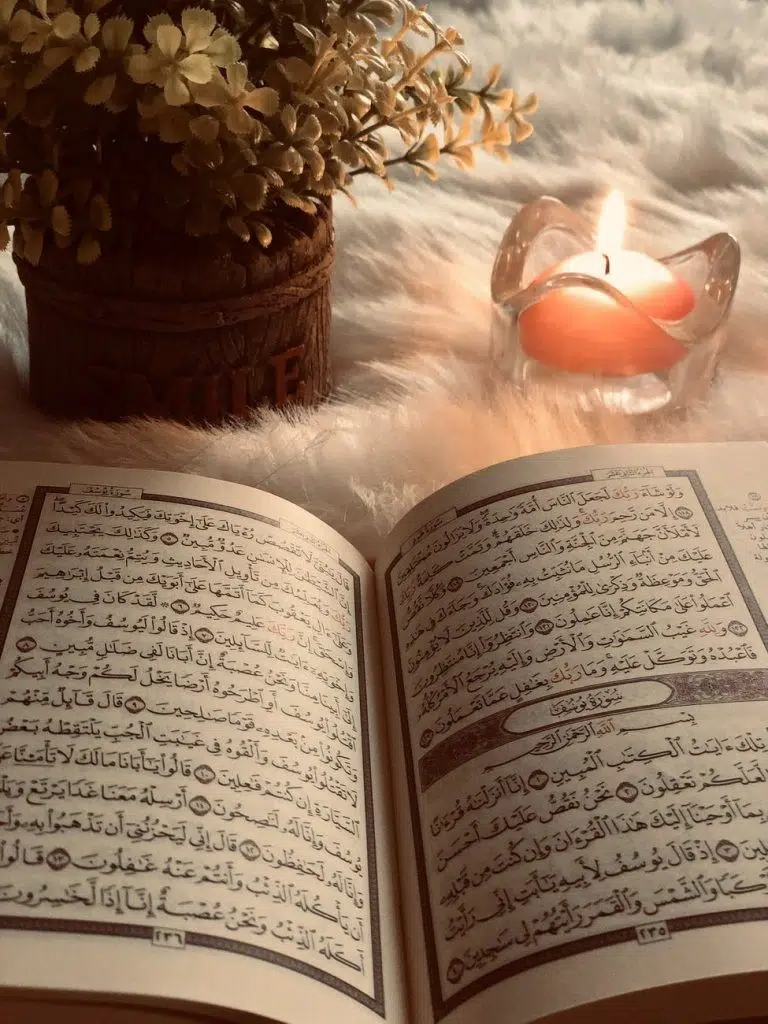
Religious Observances
Islam is a religion that is practiced by over a billion people around the world. Central to the practice of Islam are the religious observances that are outlined in the Heavenly Quran, the holy book of Islam.
These observances are an integral part of the faith and shape the daily lives of Muslims around the world.
The Sacred Quran, which is considered to be the word of Allah as revealed to the Prophet Muhammad, serves as a guide for Muslims on how to live their lives in accordance with the teachings of Islam.
Quran contains instructions on a wide range of topics, including moral conduct, social relations, and religious practices.
One of the key religious observances outlined in the Holy Quran is the requirement for Muslims to pray five times a day.
Prayer is a central part of the daily routine for Muslims, with each of the five prayers being performed at specific times throughout the day. The first prayer, known as Fajr, is performed before sunrise.
The second prayer, Dhuhr, is performed at midday. The third prayer, Asr, is performed in the afternoon. The fourth prayer, Maghrib, is performed just after sunset. The final prayer, Isha, is performed at night.
In addition to prayer, fasting is another important religious observance in Islam.
Muslims are required to fast during the month of Ramadan, which is considered to be a time of spiritual reflection and self-discipline. During Ramadan, Muslims abstain from food, drink, and other physical needs from sunrise to sunset.
Fasting during Ramadan is seen as a way to purify the soul, develop self-discipline, and empathize with those who are less fortunate.
Another important religious observance in Islam is the pilgrimage to Mecca, known as Hajj.
Every year, millions of Muslims from around the world travel to Mecca to perform the rituals of Hajj, which include circling the Kaaba, praying at the Maqam Ibrahim, and performing the stoning of the devil at Mina.
Hajj is considered to be one of the five pillars of Islam, and is a requirement for all Muslims who are physically and financially able to make the journey.
Christianity in the Grand Quran
References to Jesus
One of the most significant references to Jesus in the Noble Quran is in the story of his miraculous birth. According to Quran, Mary, the mother of Jesus, was a pious and chaste woman who was visited by the angel Gabriel.
The angel informed her that she would conceive a child who would be a great prophet and messenger of Allah. Mary was surprised and asked how she could have a child when she was not married.
The angel assured her that it was the will of Allah and that the child would be a sign for all people.
The Heavenly Quran also describes several miracles performed by Jesus, including healing the sick, raising the dead, and creating birds from clay.
These miracles are seen as a testament to Jesus’ power and authority as a prophet of Allah.
In addition to his miracles, Quran also emphasizes the humanity of Jesus.
He is referred to as “Isa ibn Maryam” or Jesus, the son of Mary. This title highlights his connection to his mother and emphasizes his human nature. Despite his miraculous birth and abilities, Jesus is depicted as a humble and compassionate servant of Allah.
The Noble Quran also addresses the crucifixion of Jesus, a central belief in Christianity. The Pure Quran states that Jesus was not crucified, but rather it was made to appear so.
This belief is in contrast to the Christian view of Jesus’ crucifixion and resurrection, highlighting a difference in interpretation between the two faiths.
Mary, Mother of Jesus
In the Sacred Quran, Mary’s story begins with her mother dedicating her to the service of Allah even before she was born. When Mary is born, her mother prays to Allah to protect her and her descendants from Satan. As a child, Mary is raised in the Temple and is known for her devotion and purity.
One of the most prominent stories involving Mary in the Holy Quran is the Annunciation.
The Angel Gabriel appears to Mary and informs her that she will give birth to a son, Jesus, who will be a great prophet. Mary is initially shocked by this revelation but ultimately submits to the will of Allah.
Despite the challenges she faces, Mary remains steadfast in her faith and devotion to Allah.
She gives birth to Jesus under a palm tree and is taunted by her community for having a child out of wedlock. However, she remains calm and confident, trusting in Allah’s plan.
Mary is also depicted as a compassionate and caring mother in the Sacred Quran. She is shown as a loving and nurturing figure who raises Jesus with love and devotion. She takes on the responsibility of caring for Jesus despite the challenges she faces.
Judaism in Quran
Prophets
One of the most prominent Jewish prophets mentioned in the Sacred Quran is Moses, known as Musa in Arabic. Moses is regarded as a central figure in both Judaism and Islam, and his story is detailed in multiple chapters of Quran.
Moses is revered for his leadership, wisdom, and role in delivering the Israelites from slavery in Egypt.
His encounter with Allah on Mount Sinai, where he received the Ten Commandments, is a well-known event in both religious traditions.
Another significant Jewish prophet mentioned in the Noble Quran is Abraham, known as Ibrahim in Arabic. Abraham is revered for his unwavering faith in Allah and his willingness to sacrifice his son in obedience to Allah’s command.
His story serves as a reminder of the importance of faith and trust in Allahs plan. Abraham is considered the patriarch of monotheism in both Judaism and Islam, and his legacy is honored by followers of both faiths.
In addition to Moses and Abraham, other Jewish prophets mentioned in Quran include Jacob (Yaqub), Joseph (Yusuf), David (Dawud), Solomon (Sulaiman), and many others.
These prophets are celebrated for their piety, courage, and devotion to Allah. Their stories serve as lessons for believers, teaching them about the importance of faith, humility, and perseverance in the face of adversity.
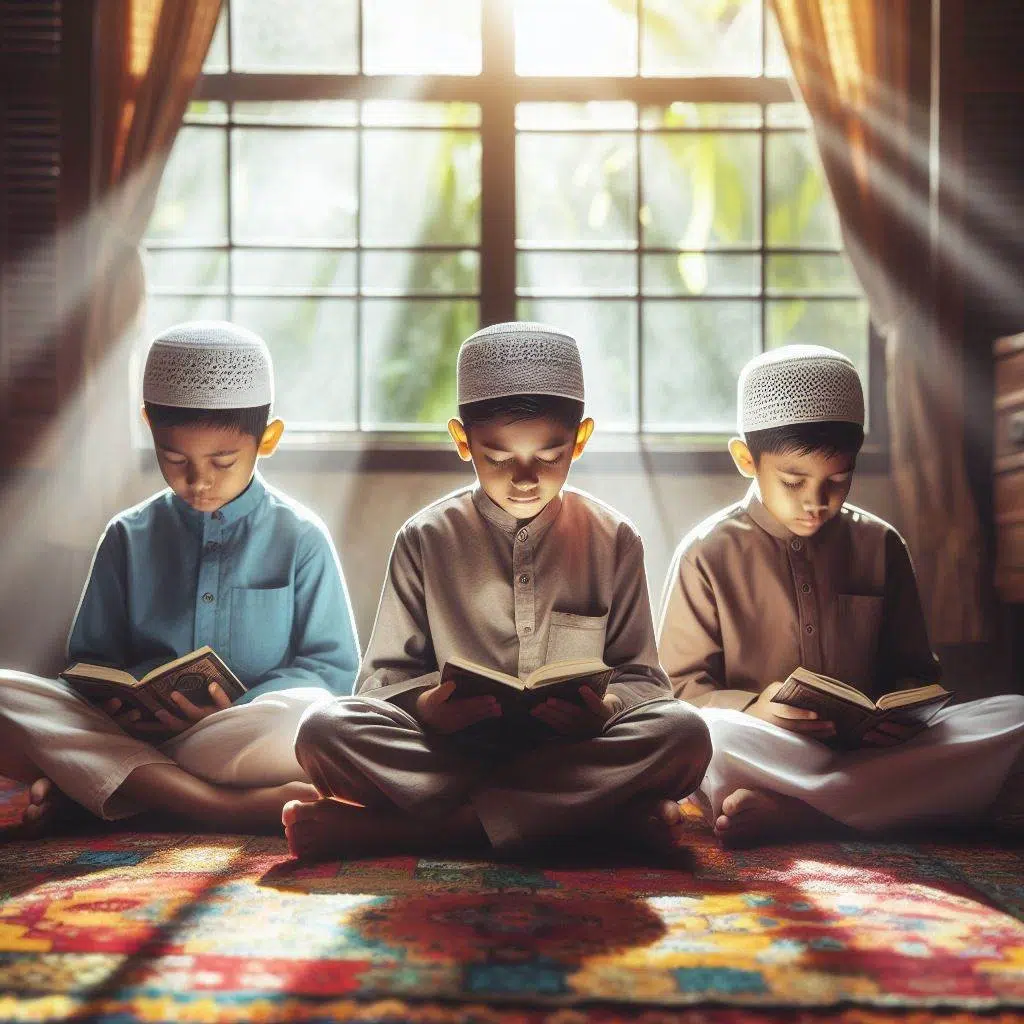
Community & Worship
The Grand Quran teaches that believers should come together to pray, study scripture, and support one another in their faith journey. Community plays a vital role in Judaism as it provides a sense of belonging and unity among believers.
Worship is also a central aspect of Judaism, with regular prayers and rituals being an essential part of a believer’s life.
Quran outlines specific guidelines for how worship should be conducted, emphasizing the importance of sincerity and devotion in one’s relationship with Allah.
Common Themes in the Holy Quran
Mercy
One of the central themes of mercy in the Tafsir of Quran is the concept of Allah’s mercy towards his creation. In numerous verses, Allah is described as being the most merciful and compassionate towards his servants.
This divine mercy is depicted as all-encompassing and never-ending, extending to all people regardless of their actions or beliefs.
In descriptive terms, this mercy is often described as vast and boundless, like an endless ocean of compassion that can never be depleted.
Another important theme related to mercy in Quran is the idea of showing mercy and compassion towards others.
The Heavenly Quran repeatedly emphasizes the importance of being merciful towards one another, especially towards those who are less fortunate or in need. Descriptive passages in the Glorious Quran often depict acts of mercy as gentle and kind, like a warm embrace that provides comfort and solace to those in distress.
One of the most famous verses in Quran related to mercy is Surah Al-Rahman, which highlights the various blessings and mercies that Allah has bestowed upon his creation.
The chapter begins with the repeated refrain “So which of the favors of your Lord would you deny?” and goes on to describe the abundant mercies of Allah in vivid and descriptive language.
For example, it describes how Allah has created the sun and the moon in precise orbits, the earth with its mountains and rivers, and the heavens with their constellations. These descriptions serve to underline the concept of mercy as a fundamental aspect of creation and existence.
Justice
The Noble Quran teaches that all human beings are equal in the eyes of Allah, and should be treated as such.
This means that people should not be discriminated against based on their race, religion, or economic status. Instead, they should be judged based on their actions and character.
Another important aspect of justice in the Tafsir of Quran is the idea of fulfilling one’s obligations and duties towards others. This includes fulfilling one’s responsibilities towards Allah, as well as towards one’s fellow human beings.
Quran stresses the importance of helping those in need and standing up for those who are oppressed. It teaches that people should be proactive in seeking justice and righteousness, rather than being passive and complacent.
The Holy Quran also emphasizes the concept of accountability and retribution for wrongdoing. It teaches that those who commit injustices will be held accountable for their actions, and will face consequences in the hereafter.
This serves as a deterrent against injustice and wrongdoing, and promotes a sense of accountability and responsibility in society.
Additionally, Quran teaches that justice should be administered fairly and impartially, without any bias or favoritism.
It emphasizes the importance of having just and fair laws and institutions in place to ensure that justice is served.
The Grand Quran also calls on people to be witnesses for justice and to stand up against oppression and injustice, even if it goes against their own interests.
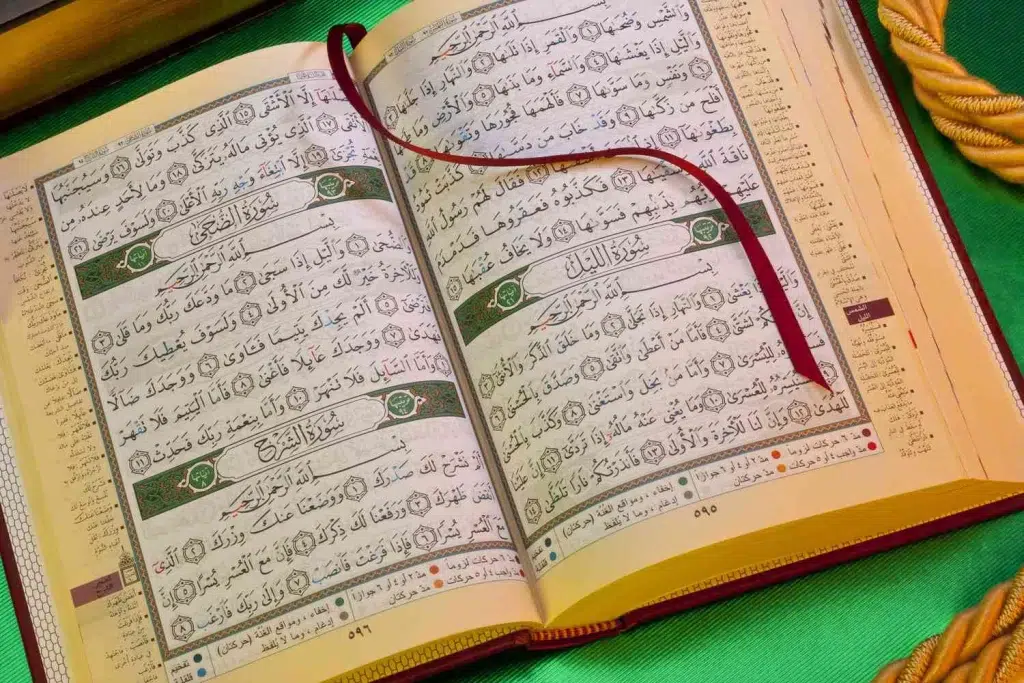
Unity
The concept of unity is emphasized in various forms, whether it be unity in faith, in worship, in community, or in purpose.
One of the most prominent aspects of unity in the Sacred Quran is the belief in the oneness of Allah. Muslims are taught to worship and submit to Allah alone, without associating any partners with Him.
This monotheistic belief is central to Islam and is underscored in numerous verses throughout the Glorious Quran. In Surah Al-Ikhlas, Allah is described as being One and indivisible, with no sons, daughters, or equals.
This emphasis on the unity of Allah serves as the foundation of Islamic faith and sets it apart from other religions that believe in multiple deities.
Unity is also highlighted in the Grand Quran through the concept of the ummah, or the Muslim community. Muslims are encouraged to come together as one cohesive unit, regardless of their differences in nationality, language, or social status.
The Noble Quran states in Surah Al-Hujurat that believers are brothers and sisters to one another, and they must strive for harmony and mutual respect within the community.
Furthermore, the Holy Quran stresses the importance of unity in purpose and action.
Muslims are called to work together in upholding justice, equality, and righteousness. In Surah Al-Imran, it is mentioned that believers should hold fast to the rope of Allah and not be divided amongst themselves.
This unity in purpose is crucial for the advancement of the Islamic faith and the betterment of society as a whole.
Overall, the Grand Quran emphasizes the importance of monotheism, the rejection of polytheistic beliefs, and the promotion of mutual understanding and respect among people of different faiths.
It serves as a guide for Muslims on how to interact with adherents of various religions and promotes the values of tolerance, peace, and harmony in a diverse and pluralistic world.

